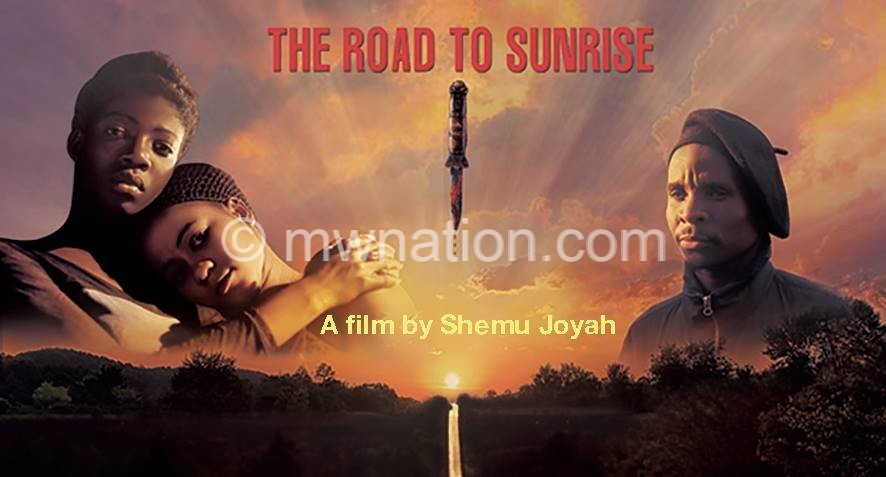Poetry is dynamic
Malawians have always loved poetry. From English to Chichewa, poetry has been around. Recently Sapitwa Poetry, a forum that promotes poetry released top 20 poems that impacted the country in the decade just ended. The list stirred a debate as to what constitutes true poetry. Our reporter BRIAN ITAI caught up with Dr Asante Mtenje, a senior lecturer at Chancellor College and head of English department to discuss everything poetry.

Q
: What is your ideal definition of poetry?
A
:Poetry is a genre of literature and there are certain elements that distinguish poetry from other genres. Poetry evokes the imagination and emotions by using a language that is different from the everyday use. It uses figurative language in order to create and communicate the chosen subject matter. Figurative language is a form of language use in which the writer/speaker mean something other than the literal sense of the word. Metaphors and similes are examples of figurative language and such use of language provokes the intellect in order for a reader to interpret the multiple meanings that can be embedded in a poem. Metaphors, similes, metonymy, symbols as figures of speech all convey imagery whether visual, aural, tactile etc. Imagery is the concrete representation of a sense impression, feeling or idea that triggers the imaginative reenactment of a sensory experience. In other words, a good poem should be able to make a reader to see, smell something through the description in the poem. A good poet knows that the strength of the works relies on their ability to “show and not tell”. As a reader don’t tell me how to feel, show me in your description and it is this showing that will elicit a response from me.
Density is also what sets poetry apart from prose. Density here refers to how much is said in a small amount of space. While in prose you can depict a love story in ten pages, you don’t have that kind of luxury in poetry. You have to say so much in so little a space, in a few lines and this is achieved through the use of metaphors and other types of figurative language. Another element that is crucial to poetry is rhythm. A poem has rhythm and it is achieved through rhyme, alliteration, consonance and assonance just to mention a few. Also, where a line ends in a poem can help achieve rhythm. A great poet is mindful of their lines and where they end in a poem.
Q
: What do you make of the current state of the art in the country more especially the vernacular poetry?
A
: Over the years, since the advent of democracy the quality of poetry has ironically declined as most of the work that passes for poetry and is published in newspapers and magazines, leaves alot to be desired. I say its ironic because in my opinion the poetry that was produced during Dr. Kamuzu Banda’s regime was thought-provoking and very creative in its use of language since writers had to think outside the box in order to evade the censor’s watch. In this era of democracy where poets don’t have to write in fear, I would have expected more creativity and more experimentation in the literary production of this era but what we have seen instead is a surge of what is arguably not good enough to be classified as poetry. But in a way, I am glad that there is this surge of expression because it shows the desire for expression that Malawians have but also their love for the art exemplified through their choice of this particular medium. I am not entirely pessimistic about the poetry scene in Malawi as they are many budding poets who express themselves in the vernacular as well as in English who are doing incredible things and putting the country on the map. When you go to poetry recitals or read work by students in primary schools, you get the sense that there is alot of talent in this country which needs to be nurtured and invested in. There is need for more support especially among the youth in terms of offering and promoting platforms where poetry can be created and shared. There also needs to be a change of attitude especially in the way we view vernacular poetry. Just like the way we value many things that are western/foreign over those that are local, poetry in vernacular is really not given enough critical attention and there is not enough interest in its production as we would expect especially considering that poetry has been part of our culture since time immemorial.
Q
: Do we have anything like having the art of poetry going through a transition where it takes slightly a different form?
A
: Art just like any cultural element is dynamic, flexible and its thematic and stylistic preoccupations change as people’s cultures change over time and as they come into contact with other cultures. There are exchanges, losses and additions along the way. For example, the form of poetry in contemporary Malawi has taken an interesting shift evident in the rise of spoken word poetry especially among the urban youth. Spoken word is a poetic performance art that is word-based. It is an oral art form which however draws on the aesthetics of poetry.
Q
: Do you think the current crop of local poets is doing enough to uphold the standards of what can be classified as real poetry?
A
: I don’t want to be prescriptive by saying only this is the real poetry. There are some local poets whose work is imaginative, critical and evocative which is what powerful poetry does. They just need more exposure and publishing outlets so that their work can be appreciated.
Q
: What needs to be done to maintain poetry as an expressive form of art which is enjoyed extensively?
A
: Children should be taught to appreciate poetry at a young age so that reading becomes part of their culture. An early introduction to the arts shows the possibilities that are made available through arts such as poetry. There should also be more coverage of the teaching of poetry in the primary and secondary school levels so that people can change their minds about poetry as being something that is inaccessible and therefore not important to their daily lives and to their intellectual growth. Also local poets should be given more support, exposure and guidance in order for them to develop their skills. This can be done through writing competitions at different levels eg. National wide competitions for primary school pupils, through the availability of local publishers that are willing to publish anything other than texts, mentoring programs supported by the government and other organisations, literary festivals where writers can interact and learn from each other. Without any serious investment in the arts, poetry and other forms of art will remain underdeveloped. n





